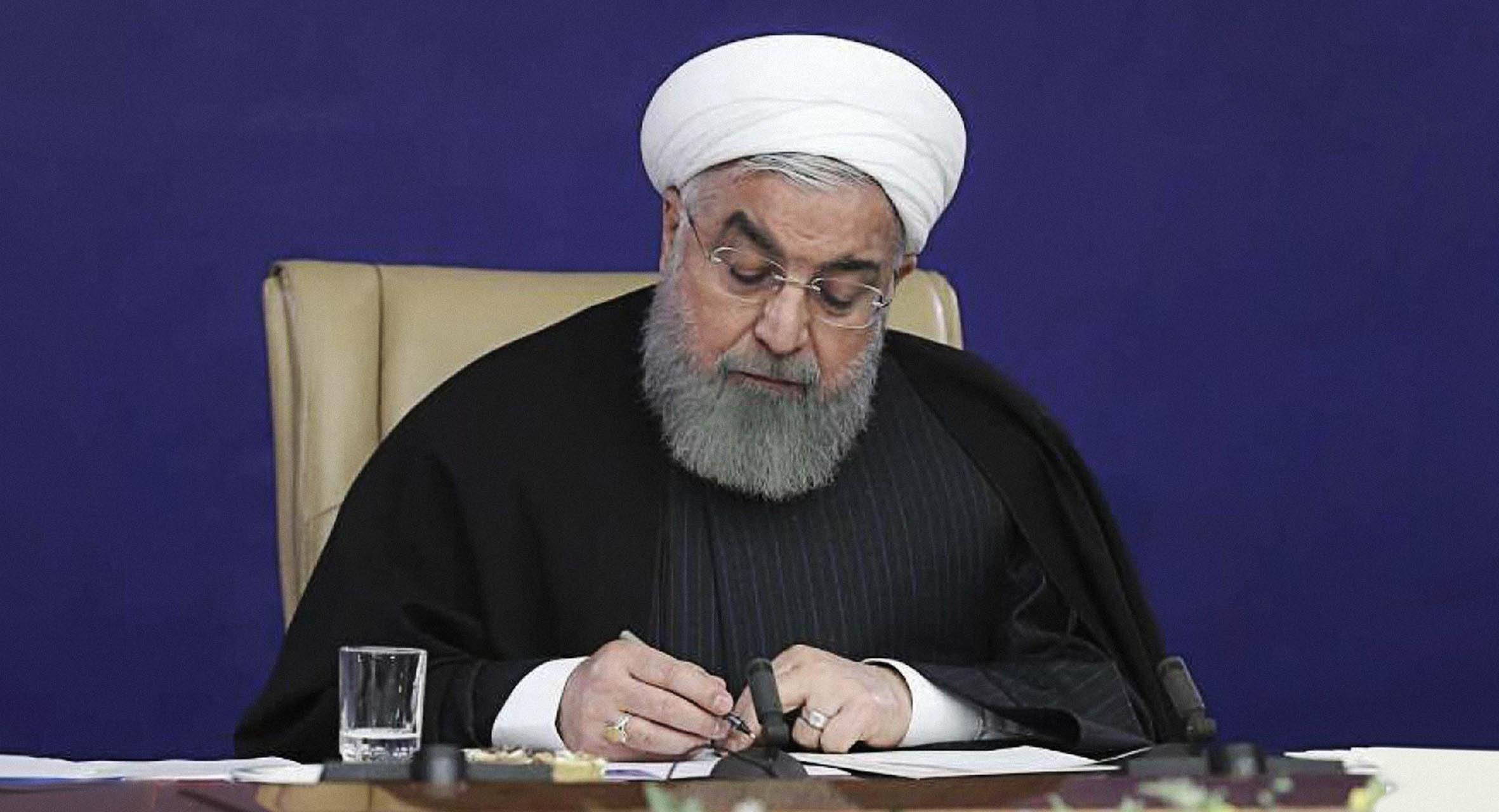‘Are Uighurs even real Muslims?’ asks frustrated Rouhani as he signs strategic deals with China
02 Apr 2021

A visibly frustrated Iranian President Hassan Rouhani put down his pen amid signing strategic cooperation deals with China, pointed at reporters who were hounding him about Beijing’s ongoing cultural genocide of the minority Muslim Uighur population, and asked to be left alone since the Uighurs “were not real Muslims” like the militias Tehran backed throughout the Middle East.
Rouhani yelled at the gathered correspondents at the press conference that “they did not know how Iran planned to lift the Uighurs from their plight”and had no right to judge him for cooperating with the country that incarcerated hundreds of thousands of the population, subjected them to torture, forced labour, sterilization and the erasure of Islamic identity, even as Tehran claims the mantle of defenders of oppressed Muslims.
“Do you think anyone can just be called Muslim?” he continued. “We don’t know if they pray, if they follow the correct sect, if they oppose America. And it would be a bit of a stretch to say the road to Jerusalem passes through Xinjiang.”
“We can save the Uighurs,” Rouhani said after drinking a cup of water and calming down. “Wait and see what will happen after we ally with the Chinese, and show them how good we are at training fighters. The Chinese will beg them to stay Muslims then and expand their own proxy war sector, where they have been underperforming.”
Rouhani said the deal with China, which allows for security, military, weapons development and economic cooperation, will not affect Iran’s credentials as an anti-imperialist power.
“We need some margin of operation because we are suffocated by sanctions,” he said. “In addition, doing a deal with a global power like China will allow us to spread the resistance mentality in other countries participating in the Belt and Road initiative, especially in Africa where we have only had a limited presence so far.”